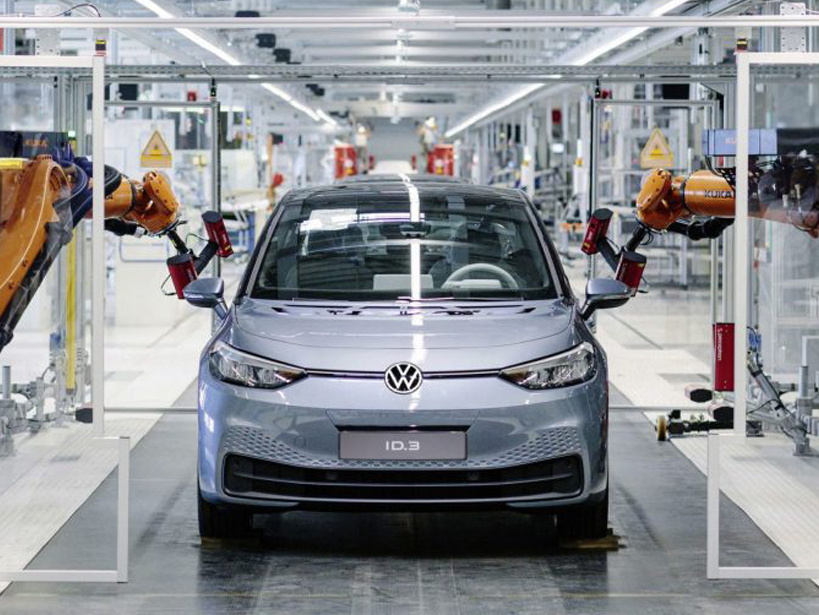The European Union (EU) is preparing to select a firm to oversee its joint buying platform for critical minerals, a move designed to strengthen the bloc’s autonomy in sourcing vital raw materials. This initiative is part of the EU’s broader strategy to secure reliable access to critical minerals, which are essential for a variety of high-tech and green technologies, including electric vehicles (EVs), renewable energy systems, and advanced electronics.
As the global economy shifts towards decarbonization, the demand for critical minerals such as lithium, cobalt, nickel, and rare earth elements has skyrocketed. These minerals are indispensable for the production of batteries, wind turbines, solar panels, and other technologies central to the EU’s ambitious Green Deal and Net Zero Emissions targets by 2050.
However, the EU currently relies heavily on imports for these resources, with China, Russia, and other nations controlling a significant portion of the global supply chain. This dependency poses both economic and geopolitical risks, particularly as global competition for these resources intensifies. Supply disruptions, trade tensions, and environmental concerns have further underscored the need for the EU to diversify its supply sources and reduce its reliance on external actors.
The proposed joint buying platform is seen as a critical tool in addressing these challenges. Through this platform, EU member states and companies would work together to secure bulk purchases of key minerals, ensuring that the bloc has consistent and affordable access to the materials needed to power its green transition. By pooling resources and coordinating procurement efforts, the EU aims to negotiate better deals with suppliers and create more resilient supply chains.
The platform is modeled on a similar approach used for the EU’s joint vaccine procurement during the COVID-19 pandemic, which helped member states secure vaccines quickly and at scale. In this case, however, the focus is on long-term supply agreements with mining companies and other suppliers, potentially extending to countries that are strategic partners under the EU’s Critical Raw Materials Act.
The firm to be chosen by the EU will be tasked with managing and operationalizing this joint buying platform. Responsibilities are expected to include negotiating supply agreements, coordinating with member states, ensuring compliance with environmental and ethical standards, and mitigating risks related to price volatility and supply disruption.
The selection process is reportedly nearing its final stages, with several prominent European and international companies vying for the role. The chosen firm will be pivotal in shaping how the EU secures its future supply of critical minerals, particularly in the face of rising demand for clean energy technologies.
This joint buying platform is just one part of the EU’s comprehensive strategy to enhance the security of critical raw materials. In March 2023, the European Commission unveiled the Critical Raw Materials Act, which outlines several key objectives, including diversifying supply by securing at least 10% of its critical raw materials from domestic sources, reducing reliance on imports from single countries or regions and increasing recycling 15% of its critical raw materials by 2030, reducing the need for virgin materials and promoting a circular economy. In addition, the EU looks to strengthen partnerships by forging new alliances with countries in Africa, Latin America, and other regions rich in critical minerals to develop sustainable and mutually beneficial supply chains, and reduce dependency by 2030 by having no more than 65% of any critical raw material be sourced from a single third country, limiting exposure to geopolitical risks.
While the joint buying platform and broader EU strategy are seen as essential steps toward supply chain resilience, challenges remain. Securing new suppliers outside of China, the dominant player in global critical mineral processing and refining, will not be easy. Many of the countries rich in critical minerals face their own internal challenges, including political instability, infrastructure deficits, and environmental concerns, which could complicate the establishment of secure supply chains.
Moreover, the push for ethical and sustainable mining practices is a priority for the EU, as it seeks to avoid sourcing materials from regions associated with human rights abuses or environmentally destructive practices. This means the selected firm will need to balance cost-effective procurement with the EU’s commitment to high environmental and social standards.
On the flip side, the initiative presents significant opportunities for European businesses to become more competitive in the global clean energy market. By securing reliable access to critical minerals, the EU can accelerate the production of EVs, solar panels, and wind turbines, helping to meet its green transition goals while reducing dependency on volatile foreign markets.
As the EU prepares to choose a firm to manage its critical minerals joint buying platform, the decision marks a crucial moment in the bloc’s efforts to secure its green energy future. With the demand for critical minerals expected to rise sharply in the coming years, this platform will play a key role in ensuring the EU’s supply chain resilience, economic competitiveness, and environmental sustainability. By pooling resources and coordinating mineral procurement, the EU is not only addressing its immediate supply concerns but also laying the groundwork for long-term strategic autonomy in critical raw materials. The success of this initiative will be instrumental in the EU’s ability to lead the global shift toward a sustainable, low-carbon future.

